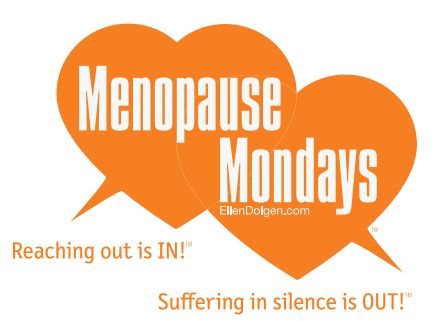

You wake up in the middle of the night to sweat-soaked sheets, your thoughts are wading through brain fog and you can't remember the last time your period didn't come as a (heavier-than-ever) surprise. Congratulations! You're going through perimenopause.
Unless you want to add a baby into the mix -- or for some reason, love your perimenopause symptoms -- you might want to consider your contraception options.
During women's late 30s and 40s, they produce less progesterone, and their number and quality of follicles -- the basic units of female reproductive biology -- decrease. Cycle length and ovulation become irregular, with results ranging from surprise periods to surprise babies, according to Dr. Margery Gass, MD, NCMP, and Executive Director of The North American Menopause Society.
Since a woman's fertility drops after age 30, many women in the throes of perimenopause believe they can't and won't get pregnant. This is not really the case, since less-than-regular cycles make it difficult for women to prevent pregnancy without the use of contraceptives. "Ovulation becomes unpredictable during perimenopause, so it is difficult for a woman to know when she is ovulating and can become pregnant," Gass says.
Besides blocking babies, hormonal contraceptives -- including pills, patches, shots and implants -- can ease the pain of perimenopause. "Continuous hormonal contraceptives can eliminate hot flashes in perimenopausal women," Gass says. "Mood may get better for some, but not all women." Hormonal contraceptives can also reduce vaginal dryness and prevent bone loss, which are both common and potentially serious complications of perimenopause, she says. Also during their "change," many women experience painful, heavy periods that can them leave wondering if they should buy stock in tampons and pads. However, by suppressing ovulation, birth control pills can quell heavy menstrual flow and regulate periods, according to Harvard Medical School.
Be careful, without correct supervision from a doctor, hormonal contraceptives can send you some mixed signals. "Hormonal contraceptives can induce menstrual-like bleeding for years. Generally, women have to stop the pills to see if they are in menopause. After she has discontinued the pills for a month or more, she can check her FSH (follicle-stimulating hormone) level," Gass says. Follicle-stimulating hormones control your menstrual cycle, your production of eggs and can reveal whether or not you have entered menopause. Testing FSH a second time one month later will provide a more reliable result.
You should make special considerations when selecting a form of birth control. For example, while it is safe for women who smoke to use oral contraceptives until age 35 (however, we strongly advise against smoking), later, the cardiovascular risk associated with birth control pills and smoking exceeds the (normal) risks associated with pregnancy, according to Gass. Hormonal contraception is typically prescribed at a higher dose than hormone replacement therapy, suggesting that hormonal contraception carries a higher risk of blood clots, strokes and heart attacks. Also, for a woman who is at least 50 years old, having an IUD implanted may not make sense, since the cost and the protection are based on five years of use, Gass says. Together with your physician, you can decide when and if it is best to transition to hormone therapy.
Chances are you've spent 20+ years trying not to get pregnant -- and you aren't done yet! If you are in perimenopause, contraception is still an important piece to your health. It can spare you from diaper duty and hot flashes alike. Take control of your body. Talk to your doctor and find hormone happiness today.
Reaching out is IN! Suffering in silence is OUT!
Let's hang out! The first Monday of every month at 5:30pm PST/8:30pm EST, Ellen is hosting her Menopause Mondays Google Hangouts: Where the Sisterhood helps the Sisterhood. Get ready to talk menopause with Ellen at this free online event! Details and RSVP here.
For more by Ellen Dolgen, click here.
For more on women's health, click here.
Ellen Dolgen is an outspoken women's health and wellness advocate, menopause awareness expert, author, and speaker.
After struggling through the silence that surrounds menopause, Ellen resolved to help women reach out and end the confusion, embarrassment, and less-than-lovely symptoms that come with "the change." Her passion to be a "sister" to all women fueled Ellen's book, Shmirshky: the pursuit of hormone happiness. As a result of her women's wellness journey, and in response to the overwhelming thirst of her ever-expanding audience for empowering information, Ellen's weekly blog, Menopause Mondays was born.
Menopause Mondays allows Ellen an expansive platform from which she broadens her discussion of menopause, women's health, and life as a menopausal (and fabulous!) woman. Her weekly Menopause News Flash provides a one-stop shop for the latest menopause and women's health news and research, allowing women the access and know-how needed to take charge of their health and happiness. In addition to Ellen's ever-growing social media presence, EllenDolgen.com has fast become "the place" on the web for informative and entertaining women's menopause and wellness engagement. In 2012 EllenDolgen.com was named first on the list of the "Best Menopause Blogs" by Healthline. Ellen is also a regular contributor to over a dozen leading women's health blogs. Her motto is: Reaching out is IN! Suffering in silence is OUT!
Ellen has appeared on the "TODAY Show," the "Rachael Ray Show," "The Doctors," Oprah Radio, Playboy Radio, NPR's "Tell Me More," Doctor Radio, and dozens of regional and national media outlets. Ellen is also one of the first regular contributors to debut on The Huffington Post's recently added site, Huff/Post50, which targets 116 million Americans over the age of 50.
Like Ellen Dolgen on Facebook, follow her on Twitter and Pinterest, connect with her on LinkedIn, Google+, and Klout, watch her videos on YouTube, and subscribe to her newsletter.